Wolf Cut And Mullet, What's The Exact Distinction?
With its vast and varied world of hairstyles, the world of haircuts provides a large number of selections to fulfill each person's unique liking and individuality. Amidst the multitude of stylish cuts available, two styles that have been getting a lot of attention lately are the wolf cut and the mullet.
While both exude a bold and edgy vibe, they possess unique traits that set them apart from the rest. This complete guide will tell you the key differences between a wolf cut and a mullet to help you choose the right one.
What Is Wolf Cut?
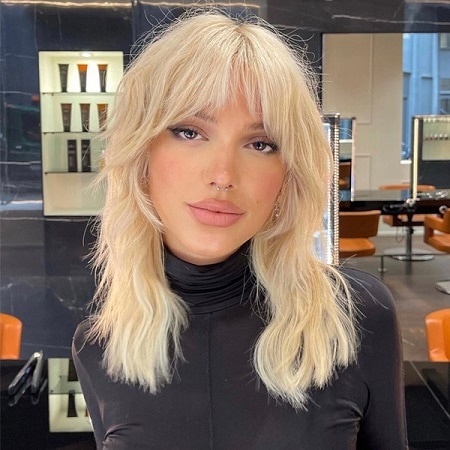
The Wolf Cut is a modern hairstyle that incorporates elements of shaggy hair and mullet hairstyles. It is distinguished by its volume and layers, with a choppy, textured surface. This style usually has shorter, sparse layers on the top and sides, blending into longer, fluffier layers towards the bottom.
Wolf Cut: Pros And Cons
Advantages of the Wolf Cut
◆ Highly versatile and flexible
◆ Simple to shape
◆ Stylish and modern
◆ Works for all hair types and face shapes
Disadvantages of the Wolf Cut
◆ Frequent trimming is required
◆ Growth can be challenging
◆ May not flatter very fine hair
Some Popular Wolf Cut Hairstyles For You
We have gathered a few of our favorite wolf-cut hairstyles that anyone can experiment with. No matter which style you prefer, there is certainly a wolf-cut hairstyle for you.
Short Wolf Cut

Long Wolf Cut

Curly Wolf Cut

Layered Wolf Cut Hair
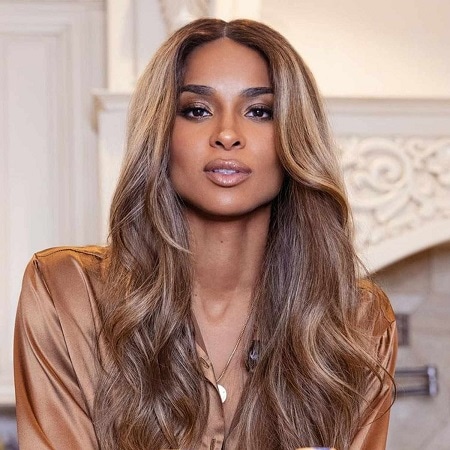
Wolf Cut With Curtain Bangs
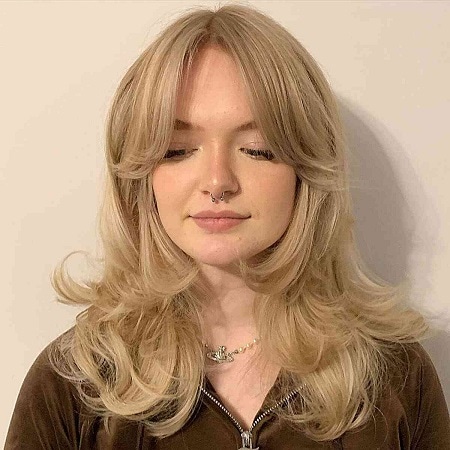
What Is Mullet?
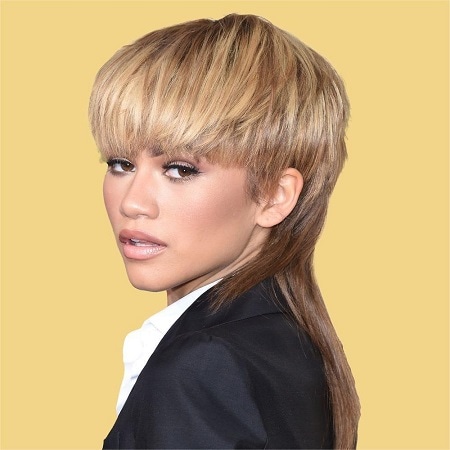
Dating back to ancient times, the mullet is a time-honored hairstyle that became increasingly popular in the 1970s and 1980s. The mullet is famous for its “business in the front, party in the back” look, with short hair on the front and sides and longer hair in the back, creating a distinctive look.
Mullet: Benefits and Drawbacks
Pros of the Mullet
◆ Unique and bold appearance
◆ Low back maintenance
◆ Can be customized to personal taste
Cons of the Mullet
◆ Regular front and side trimming required
◆ May not suit all facial shapes
Some Chic Mullet Hairstyles For You
We have collected some trendy and stylish mullet hairstyles that anyone can wear and try. No matter which style you prefer, there is always a mullet hairstyle for you.
Short Mullet
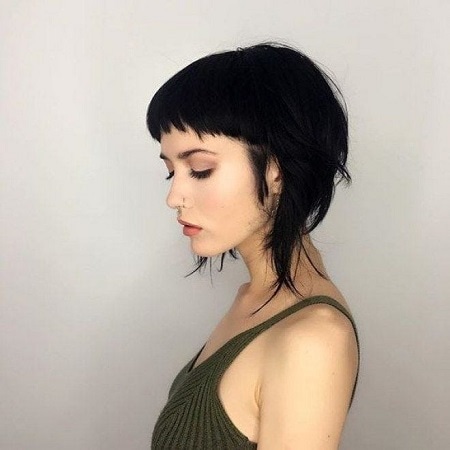
Long Mullet

Shag Mullet
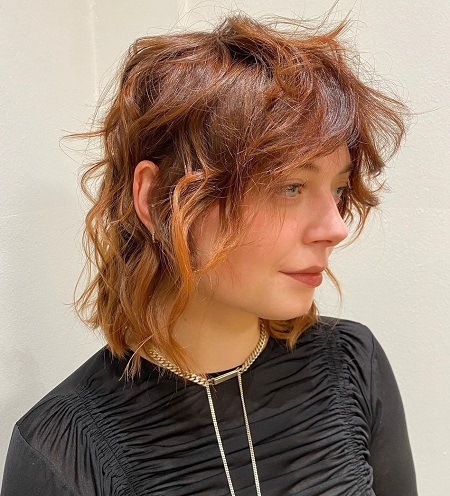
Red mullet

Curly Hair Mullet

What's The Difference Between A Wolf Cut And A Mullet?
Although the wolf haircut and the mullet have some similarities, they are two different hairstyles. Next, we will tell them the distinction between the two to help you pick the hairstyle of your choice.
| Method | Wolf Cut | Mullet |
| Layers and Length | Lots of choppy layers, shorter in the front and longer at the back. | Short in the front, with a noticeable long section in the back. |
| Texture and Styling | Textured, shaggy, and voluminous, with lots of movement. | Defined by a dramatic contrast between front and back, often styled with waves or curls. |
| Maintenance | Regular trims to keep layers looking fresh may require more styling. | Requires upkeep to maintain the shape, but less frequent trims than the wolf cut. |
Layers and Length
Wolf Cut: The wolf cut is often marked by shorter layers at the top that taper off towards the bottom. It typically has a choppy or shaggy texture with the longest layers usually falling around the shoulders or a little longer.
Mullet: Mullet is distinguished by shorter hairs on the top and sides of the head and significantly longer hairs on the back. The contrast in length between the front/top and back is more pronounced in the mullet cut than in the wolf cut.
Texture and Styling
Wolf Cut: A wolf cut commonly involves more texture and layers in the hair to create a messy or straggly appearance. It can be worn in several styling options, including loose waves or curls.
Mullet: Mullets are often featured with a smoother texture on the top and sides, and a longer back that is sometimes straight or slightly wavy. The mullet cut usually has a more structured overall appearance than the wolf cut.
Maintenance
Wolf Cut: The wolf cut care might need regular trimming to keep the shape and prevent split ends, based on the desired length and texture. Holding products may be used to enhance texture and hold.
Mullet: Due to the contrasting lengths and specific styling needs, mullets may necessitate more frequent maintenance. Regular trimming is necessary to maintain shape integrity and styling products may be needed to effectively control the different layers.
Wolf Cut VS. Mullet, Which One Is Better?

It is well known that wolf cut and mullet hairstyles each have their own advantages and disadvantages, so it is difficult for us to judge which hairstyle is better. In short, you can choose your favorite hairstyle according to your preferences and needs.
